UCI versus Grand Tour organisers: The gloves are off
In what will surely be seen as a crucial day for the future direction of world cycling, Cyclingnews'...
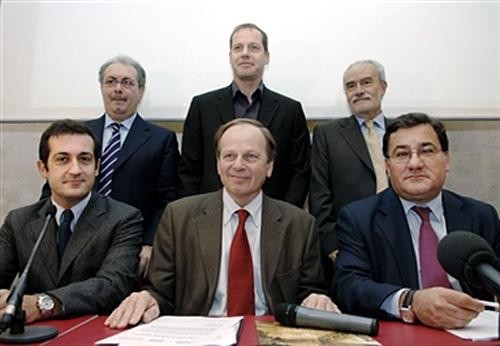
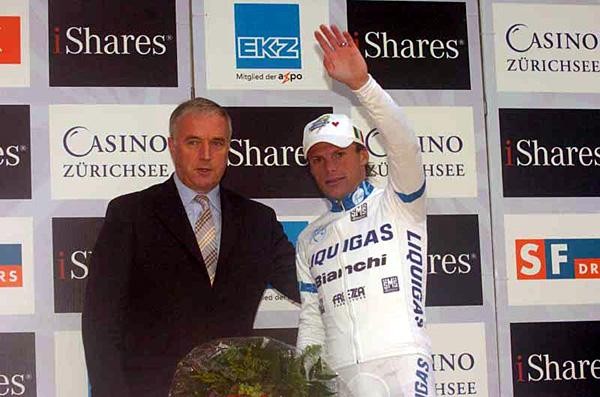
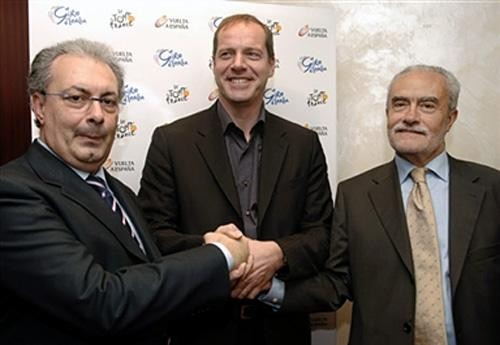
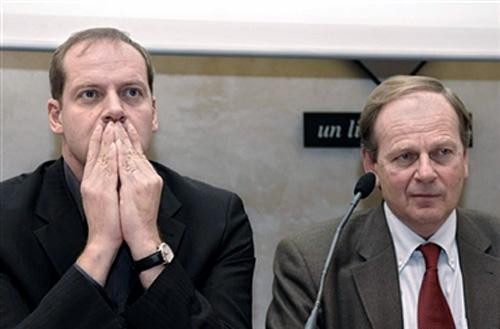
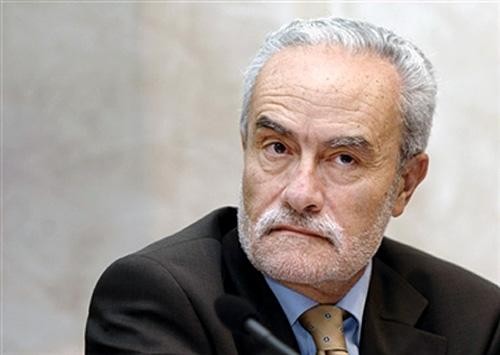
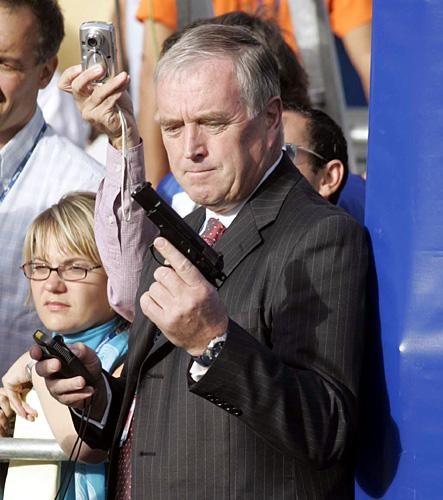

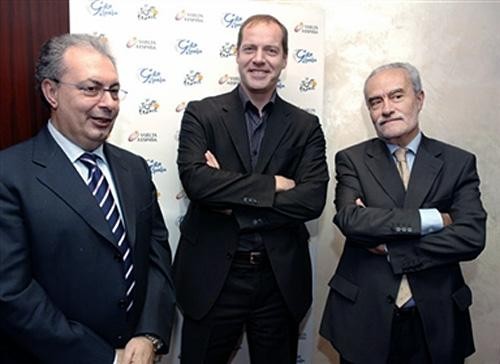


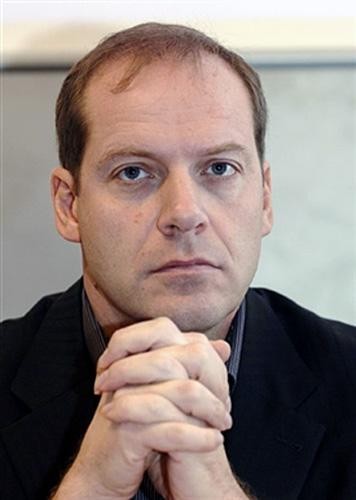
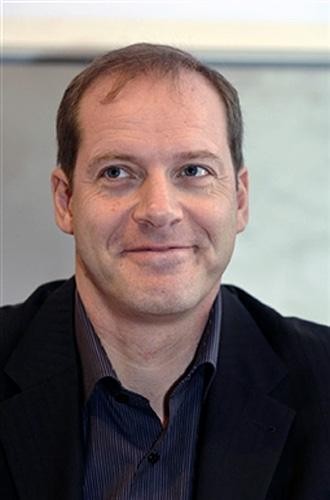
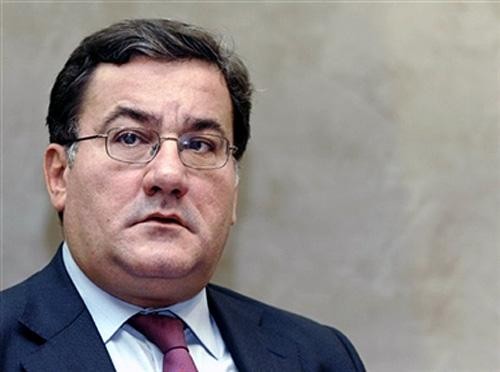
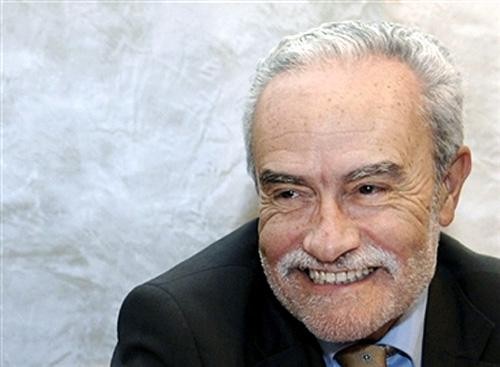

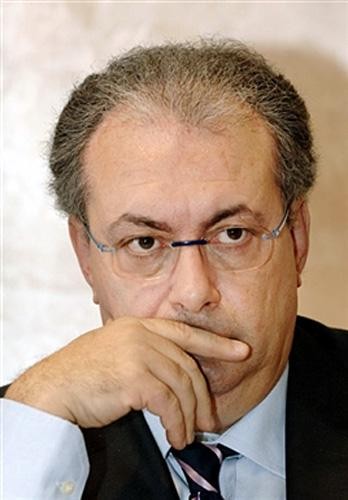
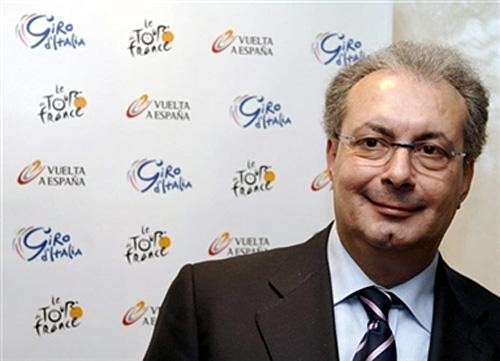
News feature, December 10, 2005
In what will surely be seen as a crucial day for the future direction of world cycling, Cyclingnews' Shane Stokes looks at the opposing stances expressed on Friday by the Grand Tour organisers and the UCI.
The UCI has reacted angrily to today's announcement by the organisers of the three Grand Tours, namely ASO, RCS and Unipublic, that they plan to withdraw from the ProTour and establish a 'Grand Tour Trophy' to encourage participation in the Tour de France, Giro d'Italia and Vuelta a España. Coincidentally, the announcement was made on the same day that the draw was announced for next year's Soccer World Cup, which is major sporting news in Europe. It could be compared to politicians rushing legislation through parliament before Christmas.
UCI President Pat McQuaid contacted Cyclingnews on Friday evening and gave his initial reaction. He spent much of Friday afternoon travelling from the African championships in Cairo and said that he has yet to fully study the day's developments before giving a more complete response.
McQuaid did state that he was "very surprised by the news," adding that "they [the Grand Tour organisers] are talking about regulations, but the UCI are the sole authority in this area. They need to reflect on this. I feel it is very hypocritical for them to have criticised us on the ethics of giving licences to teams, when they then throw all of that out the window in attempting to buy [the participation of] the teams."
McQuaid's position echoes that communicated in a press release issued by the UCI on Friday evening. The communiqué leaves the cycling world in little doubt as to the governing body's total opposition to the new plans, with the UCI effectively coming out with all guns blazing in what is a strongly worded document.
After stressing that the UCI alone can modify the rules governing cycling, the release states somewhat pointedly that "the UCI ProTour council will study the proposals for 2007", thus appearing to reject their planned introduction of a Grand Tour Trophy for next season.
Get The Leadout Newsletter
The latest race content, interviews, features, reviews and expert buying guides, direct to your inbox!
It underlines this by adding, "the UCI insists that in accordance with article 1.2.026 of the UCI regulations, no other new classification, notably the "Trophy of the Three Grand Tours", can be created without its authorisation. This rule stipulates that every classification based on the International Calendar must be formally authorised by the UCI."
The press release then rejects claims that the UCI has given inaccurate information to teams, and asserts that the tone of Friday's initial communiqué shows that "the organisers of the three Grand Tours attach more importance to commercial and financial aspects than to sporting criteria and to the stability of the movement as a whole."
Furthermore, the UCI alleges that "the ethical principles which were put forward by these organisers to obstruct the ProTour licences, using just one example, apparently do not apply when they decide to buy the participation of the best teams for their races."
The governing body concludes by stating it is the only party without economical interests to defend or promote, referring to the new plans as an "obsolete and dangerous for the...development of cycling." It vows that it is more committed than ever to the system of ProTour and Continental Circuits which was introduced in 2005.
The Grand Tour organisers' position
The UCI's communiqué comes several hours after ASO, RCS and Unipublic issued a group statement announcing that they were withdrawing the three Grand Tours plus eight other big events from the ProTour calendar.
In it, the Tour organisers lay the blame completely at the door of the UCI. "After months of fruitless discussions, which UCI chose not to pursue after the summer, and following a one-week ultimatum for the events which they stage (in chronological order: Paris-Nice, Tirreno-Adriatico, Milan-SanRemo, Paris-Roubaix, la Flèche Wallonne, Liège-Bastogne-Liège, Giro d'Italia, Tour de France, Vuelta a España, Paris-Tours and Giro di Lombardia) to join the ProTour under terms which it set, the UCI has indeed decided:
To break off discussions on ways to include in the ProTour the races staged by RCS Sport, A.S.O. and Unipublic
ASO, RCS and Unipublic then reject this by saying that maintaining the provisional settlement put in place for 2005 for the 2006 season makes no sense, "as this compromise was intended to permit reaching a general agreement on the ProTour, which UCI states it no longer seeks."
Underlining that the organisers' 11 events will exist on the "World Calendar" in 2006, the communiqué lists what they feel should be the criteria for selection for major races. The organisers state that:
Selection must be based on both performance and ethical criteria: taking part in an event cannot be the result of negotiations.
In an effort to address these issues, ASO, RCS and Unipublic list details of how they intend to run their events from 2006 onwards. Under the system, they say that "14 teams selected on the basis of a ranking system will have the right and not the obligation to take part in non-ProTour events." The communiqué adds that the organisers would employ wildcard entries to complete the field, this extending to a maximum of eight such teams for the major Tours.
Going by their blueprint, selection for these events will depend in full or in part upon how the teams performed in these races the preceding year. A points system will be set up in consultation with a panel of experts, while the ethical standards of the teams will also have a role in determining which of them takes part.
In order to encourage participation in the Grand Tours, the organisers announced plans for two separate measures. Firstly, teams taking part in all three would receive an extra €100,000 each, this sum adding to the monies already received under existing agreements with AIGCP. Secondly, the so-called "Trophy of the Three Grand Tours" launched in the mid 80's will be resurrected, with a total prize fund of €2 million going to the best teams in the races. The winner's purse will total €600,000 and seven teams will be rewarded.
Although the rankings of this year's ProTour will be used in order to select some of teams for 2006, the Grand Tours' communiqué highlights what the organisers feel have been two failings with the UCI's system. It charges that it is "neither credible from a competitive viewpoint, [because] all 2005 ProTour events, whether held over a single day or three weeks, procured the same number of points." This is not correct, as the overall classification of the Tour de France was worth 100 points, whereas those of the Giro d'Italia and Vuelta a España were worth 85, the major one day races and smaller tours were worth 50, and the smaller one day races were worth 40 points. Nevertheless, the ProTour system certainly did not reward stage winners well, with 1 point for a win in a 'normal' ProTour stage race, and 3 for a win in a Grand Tour.
The Grand Tours also state that the ProTour system is unfair, "as teams benefiting from a wildcard, the likes of Comunidad Valenciana, winner of the [team classification at the] Vuelta or Panaria, which won Tirreno-Adriatico, were stripped of their points for not having a ProTour licence."
However, in order to accommodate teams that were under the impression that they would gain entry to the events next year as part of the ProTour, the organisers say that they have decided to offer wildcards in priority to teams with a ProTour licence. Participation will be voluntary rather than compulsory, with any shortfall in numbers coming from teams outside the ProTour standings.
The communiqué ended by saying that the principles outlined for 2006 came about due to the urgency caused by "recent UCI decisions".
The split is getting wider
What is clear from both press releases is that, despite the optimism initially voiced in early October that a solution could be found for 2006, the gulf between the UCI and the Grand Tour organisers has never been so big. Both have clearly stated their positions today, with ASO, RCS and Unipublic expressing their determination to go it alone and the UCI insisting that they will not back down. It remains to be seen what the other players make of Friday's developments: the teams and the sponsors, the media, as well as the onlooking general public.
As for the long term outcome, the weeks and months ahead will reveal whether relations will heal, or if Friday December 9 marked the start of a long-running civil war within the sport.